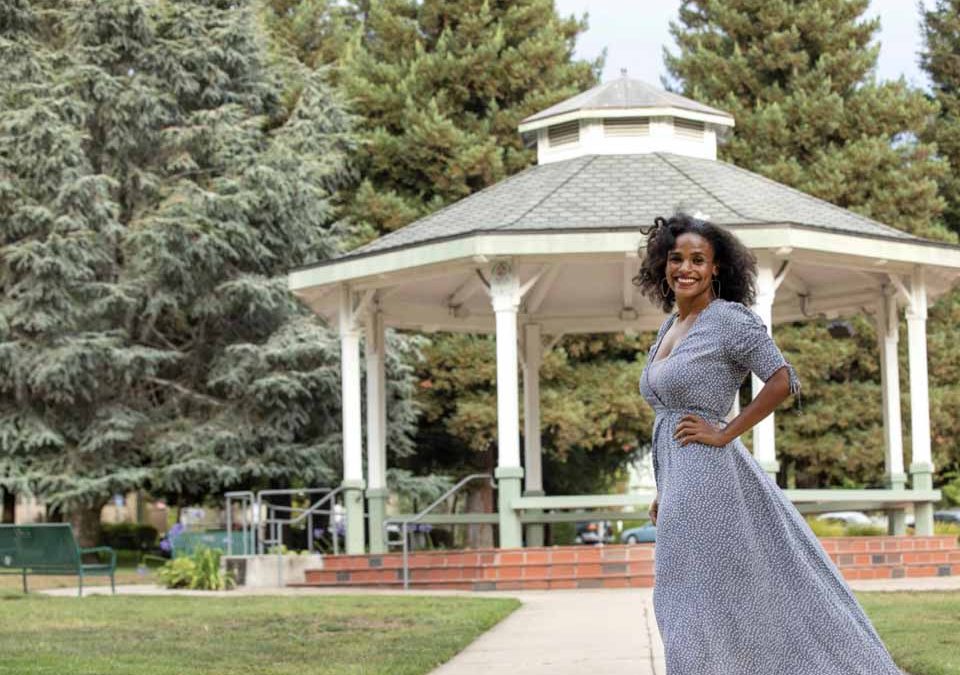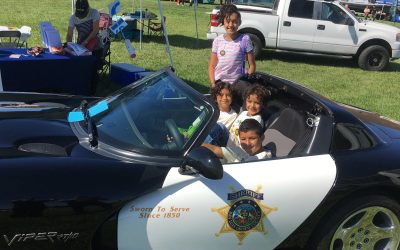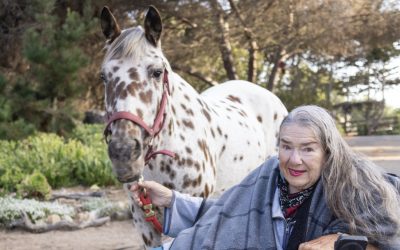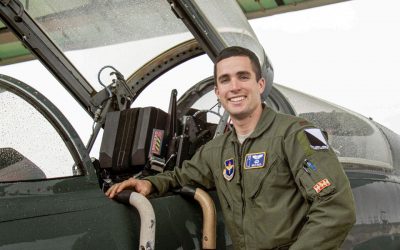What would it be like to be young, Black, living in San Francisco, but not to be accepted by your Black peers? What disguise would you have to wear to become friends with white students? How would those experiences shape you as you continued your education and eventually became a community leader? Courtney Haile, a 1996 graduate of San Luis Obispo High School and the founder of R.A.C.E. (Responsibility, Action, Compassion, Education) Matters, had those experiences and she has the answers.
I spoke to Courtney shortly after she helped organize several rallies in response to the killing of George Floyd. “It’s been overwhelming. I’m starting to sleep more after a couple of weeks of getting very little sleep.” Courtney lives in San Luis Obispo with her partner, Roberto, and his two children, Jasmine and Ryder. Prior to the COVID outbreak, she was teaching fitness classes as well as dedicating much of her time and energy to RACE Matters.
I spoke to Courtney shortly after she helped organize several rallies in response to the killing of George Floyd. “It’s been overwhelming. I’m starting to sleep more after a couple of weeks of getting very little sleep.” Courtney lives in San Luis Obispo with her partner, Roberto, and his two children, Jasmine and Ryder. Prior to the COVID outbreak, she was teaching fitness classes as well as dedicating much of her time and energy to RACE Matters.
Born in San Francisco, Courtney grew up first in inner Richmond, a neighborhood she described as ethnically diverse. Her elementary and middle schools, both public, were predominantly Asian American. “I was bullied in middle school because of the way I spoke. I had a kind of valley girl cadence that I absorbed from the media. I got the ‘wannabe white girl’ title from Black students and other races as well. My parents moved me to a wealthy Catholic school in Pacific Heights for 8th grade. It was a cultural change and I started feeling like an outsider. I was the only Black girl.”
Courtney found safety in white friend groups. She used her sense of humor and what she described as her quirkiness to help her navigate all the way through high school. “At the Catholic school I heard, ‘You’re so funny, you’re so cool, you’re so pretty.’ I hadn’t heard that before, so I mistook it for, ‘This is the life so I’m just going to go with this.’ Same race friends are really important. That can’t be overlooked. Continuing to identify with another race isn’t sustainable. I began to understand that I was different and I wished I had friends who understood.”
Courtney found safety in white friend groups. She used her sense of humor and what she described as her quirkiness to help her navigate all the way through high school. “At the Catholic school I heard, ‘You’re so funny, you’re so cool, you’re so pretty.’ I hadn’t heard that before, so I mistook it for, ‘This is the life so I’m just going to go with this.’ Same race friends are really important. That can’t be overlooked. Continuing to identify with another race isn’t sustainable. I began to understand that I was different and I wished I had friends who understood.”
A big culture shock occurred when Courtney and her family moved to San Luis Obispo before she started 10th grade. Her father, Allen, was hired as Dean of the Business School at Cal Poly. “The Black population in San Francisco was plummeting, but there was enough diversity to not feel completely different. That wasn’t the case in San Luis Obispo.” Courtney’s father died in 2018. Her mother, Barbara Haile, worked for many years as an assistant to former Congresswoman Lois Capps. Her brother, Jonathan, is active in the arts scene as a cabaret singer and as a costume designer for the local drag and burlesque communities.
Courtney relied on her class clown, attention-getting, fall-back behavior as a way of coping. She had no Black friends she socialized with. “There were a group of Black and brown kids who were referred to as ‘gangsters,’ which was ridiculous and racist, but I didn’t hang out with them. I gravitated toward white students.”
Overt racism was not part of Courtney’s experience at SLOHS, which she described as positive, but being “very identifiable,” she was some- times singled out for consequences that others didn’t receive. “We were pranksters, but I obviously didn’t act alone.”
An outstanding track athlete, Courtney attended the University of Maryland. “It was extremely diverse there. I was a member of an all-Black sprint squad. It was really important to have Black friends for the first time.” After two years, she transferred to the University of Southern California, where she took her first African American studies classes. “I took music and classes that added some structure to the media images
I was exposed to as a child. I started looking critically at the things I wasn’t taught when I was young. At USC our history was framed in a cool way, not ‘we’re the victims, feel sorry for us.’ We were the cool ones.”
Courtney relied on her class clown, attention-getting, fall-back behavior as a way of coping. She had no Black friends she socialized with. “There were a group of Black and brown kids who were referred to as ‘gangsters,’ which was ridiculous and racist, but I didn’t hang out with them. I gravitated toward white students.”
Overt racism was not part of Courtney’s experience at SLOHS, which she described as positive, but being “very identifiable,” she was some- times singled out for consequences that others didn’t receive. “We were pranksters, but I obviously didn’t act alone.”
An outstanding track athlete, Courtney attended the University of Maryland. “It was extremely diverse there. I was a member of an all-Black sprint squad. It was really important to have Black friends for the first time.” After two years, she transferred to the University of Southern California, where she took her first African American studies classes. “I took music and classes that added some structure to the media images
I was exposed to as a child. I started looking critically at the things I wasn’t taught when I was young. At USC our history was framed in a cool way, not ‘we’re the victims, feel sorry for us.’ We were the cool ones.”
With a degree in Communications, emphasizing media and race in society, Courtney worked in corporate publicity, which she found unfulfilling. “I applied for and landed a job at the Museum of Tolerance as a tour guide. It was my first public speaking experience other than in school, and a seed was planted there around race and ethnicity work, a lead up to what I’m doing now.”
Continuing to pursue a satisfying career, Courtney chose to enroll in a graduate program at San Francisco State, the College of Ethnic Studies. “I thought I had more intellectual capability, more learning to do. I needed to be somewhere where I could be passionate, to put my all into something. San Francisco State is where ethnic studies originated. It upped my ante in terms of my cohort: multi-racial, intelligent, a level up. It politicized my experience to be among activists. A member of my cohort was Alicia Garza, the founder of Black Lives Matter.”
Courtney’s graduate thesis was titled “Confessions of a Tragic Oreo.” “There was a wealth of academic study on biracial people being confused about their identity. I was not biracial, but I was culturally confused due to living in predominantly white spaces and the influence of white media. I came back and interviewed other people of color living in San Luis Obispo to get their point of view. It was a good healing experience.”
Rent pressure in San Francisco forced Courtney to make a decision about where to live. She considered other options in the Bay Area but decided to move back to San Luis Obispo in 2013. “I was fortunate and grateful because my parents had been patient and generous while I explored different options. I had chances that others might not have had.”
Continuing to pursue a satisfying career, Courtney chose to enroll in a graduate program at San Francisco State, the College of Ethnic Studies. “I thought I had more intellectual capability, more learning to do. I needed to be somewhere where I could be passionate, to put my all into something. San Francisco State is where ethnic studies originated. It upped my ante in terms of my cohort: multi-racial, intelligent, a level up. It politicized my experience to be among activists. A member of my cohort was Alicia Garza, the founder of Black Lives Matter.”
Courtney’s graduate thesis was titled “Confessions of a Tragic Oreo.” “There was a wealth of academic study on biracial people being confused about their identity. I was not biracial, but I was culturally confused due to living in predominantly white spaces and the influence of white media. I came back and interviewed other people of color living in San Luis Obispo to get their point of view. It was a good healing experience.”
Rent pressure in San Francisco forced Courtney to make a decision about where to live. She considered other options in the Bay Area but decided to move back to San Luis Obispo in 2013. “I was fortunate and grateful because my parents had been patient and generous while I explored different options. I had chances that others might not have had.”
Courtney found work with Court Appointed Special Advocates (CASA). RACE Matters started in 2016 as a direct response to the police shooting of Philando Castile during a traffic stop in Minneapolis. “We had a very polite sign-holding protest in the plaza, which I organized through Facebook. I contacted Gina Whitaker at the Universalist Unitarian Church which had a Black Lives Matter sign hanging from the church. She came to the rally and we started an email list. We weren’t sure what we were going to do, but we knew there needed to be more engagement around this issue.”
RACE Matters started hosting free events grounded around conversations about police brutality. Film screenings and anti-racist events followed. “I was noticing that most of the people attending were White, so it felt like a group to educate white people. I had some discomfort with that, going back to issues in my childhood. I thought, ‘I can’t start a race group that’s just for white people.’”
A black social arm of RACE Matters evolved, following Courtney’s intuition that black people needed to see each other, nor just to “unpack traumatic events, but also to have social events. I conceived of Noire SLO, an unapologetically black space. It’s a quarterly event where we rent out space specifically designed for Black people and significant others to socialize.” Anti-racist education is also part of RACE Matter’s mission, which includes resources available through its website.
Currently, RACE Matters’ interracial steering committee is “knee-deep in policy” regarding police reform. “We always go back to our mission. ‘To center the lived experiences of Black and other People of Color through anti-racism education and cultural projects.’ We fulfill our mission “through workshops, special events, cultural projects, and rapid response to racial and social injustice.’”
“Lately it’s been the rapid response to racial injustice. We organized protests that happened after the George Floyd killing. The work on policy is a response to people expecting us to have a list of demands about reform, to guide what local change would look like, but that’s not our only focus. We don’t want to ignore our broader mission. We don’t want to forget about arts and culture and creating cultural spaces. We want all arms of RACE Matters to get equal attention.
A black social arm of RACE Matters evolved, following Courtney’s intuition that black people needed to see each other, nor just to “unpack traumatic events, but also to have social events. I conceived of Noire SLO, an unapologetically black space. It’s a quarterly event where we rent out space specifically designed for Black people and significant others to socialize.” Anti-racist education is also part of RACE Matter’s mission, which includes resources available through its website.
Currently, RACE Matters’ interracial steering committee is “knee-deep in policy” regarding police reform. “We always go back to our mission. ‘To center the lived experiences of Black and other People of Color through anti-racism education and cultural projects.’ We fulfill our mission “through workshops, special events, cultural projects, and rapid response to racial and social injustice.’”
“Lately it’s been the rapid response to racial injustice. We organized protests that happened after the George Floyd killing. The work on policy is a response to people expecting us to have a list of demands about reform, to guide what local change would look like, but that’s not our only focus. We don’t want to ignore our broader mission. We don’t want to forget about arts and culture and creating cultural spaces. We want all arms of RACE Matters to get equal attention.
“Racism is bigger than policing. Black, brown, indigenous and other people of color feeling more welcome here goes beyond policing. We look at everything, like what music is played in stores, what entertainment we attract, personal services like hair salons, for example. Cultural conversations happen in those spaces. We want to attract more Black people to our community.”
Additional financial support for RACE Matters has made it possible for Courtney to become a paid employee of the nonprofit in the near future. While dedicated to meeting the surge of immediate demands, Courtney hopes to find a sustainable balance of work, family, social and personal interests, which include photography. In the meantime, she is focusing on RACE Matters’ greater sense of responsibility in the community.
“We want to organize and harness the support we’re getting so that we can be the best organization possible. We want to continue to build our infrastructure and volunteer base. We want to transform the dominant majority White population to become more actively anti-racist, recognizing it’s a journey, meeting people where they are. People can change.”
For more information on RACE Matters, go to racemattersslo.org.
Additional financial support for RACE Matters has made it possible for Courtney to become a paid employee of the nonprofit in the near future. While dedicated to meeting the surge of immediate demands, Courtney hopes to find a sustainable balance of work, family, social and personal interests, which include photography. In the meantime, she is focusing on RACE Matters’ greater sense of responsibility in the community.
“We want to organize and harness the support we’re getting so that we can be the best organization possible. We want to continue to build our infrastructure and volunteer base. We want to transform the dominant majority White population to become more actively anti-racist, recognizing it’s a journey, meeting people where they are. People can change.”
For more information on RACE Matters, go to racemattersslo.org.





